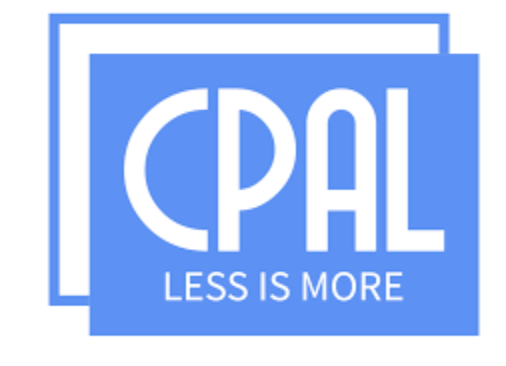


The first CPALwas successfully held at the University of Hong Kong in January 2024. The conference attracted hundreds of participants from all over the world and contained four days of activities with a colorful agenda. The inaugural conference invited nine invited speakers, 16 Rising Star Award winners, and nearly a hundred accepted papers (dual track) for oral or poster presentations.
CPAL 2025
The second CPAL will be held at Stanford University at the end of March 2025, hosted by the Stanford University School of Data Science.
Vision of the conference:
"Everything should be made as simple as possible, but not any simpler." – Albert Einstein
One of the most basic reasons for the existence of intelligence or science, and even its emergence, is that the world is not perfect Random, but highly structured and predictable. Therefore, a fundamental purpose and function of intelligence or science is to learn parsimonious models (or laws) from large amounts of perceived world data to understand this predictable structure.
Over the past decade, the emergence of machine learning and large-scale computing has dramatically changed the way we process, interpret and predict data in engineering and science. The “traditional” approach to designing algorithms based on parametric models of specific signal and measurement structures (such as sparse and low-rank models), and their associated optimization toolkits, has now been greatly enriched by data-driven learning techniques, among which Large-scale networks are pretrained and then adapted to various specific tasks. However, the success of paradigms, whether modern data-driven or classical model-based, critically relies on correctly identifying the low-dimensional structures present in real data, and we consider the role of learning and compressive data processing algorithms, whether explicit or implicit , such as deep networks) are inseparable.
Recently, the emergence of foundational models has led some to suggest that parsimony and compression themselves are a fundamental part of the learning goals of intelligent systems, which connects with neuroscience's view of compression as a guiding principle in the brain's representation of perceptual data in the world. Overall, these lines of research have so far developed relatively independently, although their foundation and purpose lie in parsimony and learning. Our aim in organizing this conference is to unify the solution and further deepen the research on this problem: we want this conference to become a universal scientific forum for machine learning, applied mathematics, signal processing, optimization, intelligent systems and all related fields of science and engineering Researchers can closely communicate here, share insights, and ultimately move toward modern theoretical and computational frameworks for understanding intelligence and science from the perspective of concise learning.
Key dates:
All deadlines are 11:00pm UTC-12:00 time zone (anywhere on Earth) 59.
Academic Rising Star "Rising Star" Encouragement Program
In order to encourage and support new forces in academia, CPAL has specially established the "Rising Star" program to discover and commend young researchers who have outstanding performance in the fields of simplicity and learning . We welcome doctoral students, postdocs, and young scholars to submit their research work. Selected “Rising Stars” will have the opportunity to present their results at the conference and gain valuable opportunities to communicate with top scholars in the field. We hope that through this program, we can inspire the innovative potential of more new generation researchers and promote the development of simplicity and learning fields.
Paper submission and subject areas
CPAL conference includes two tracks: Proceedings Track and Recent Spotlight Track. For details, please refer to the official website: https://cpal.cc/ tracks/
Important innovation in the review mechanism: Each paper has a Program Chair responsible for guiding it. For each accepted paper, the names of its responsible Area Chair and Program Chair will be publicly posted on its OpenReview page to ensure accountability. For each rejected paper (excluding retractions), only the name of the responsible Program Chair is displayed. Reviewers will be rated and selected dynamically.
CPAL welcomes submissions related to the following areas of interest, including but not limited to:
CPAL 2025 Conference Team
General Chairs:
Conference Program Chair ( Program Chairs):
Conference Advisor (Senior Advisors to Program Chairs):
Local Chairs (Local Chairs):
Publication Chairs (Publication Chairs)
Babak EhteShami Bejnordi Panel Chairs (Panel Chairs)
Rising Stars Award Chairs (Rising Stars Award Chairs)
Web Chairs (Web Chairs)
We sincerely invite researchers in all related fields to contribute, share your research results, and promote simplicity and the development of areas of study.
The above is the detailed content of The second 'Conference on Parsimony and Learning (CPAL)' will be held at Stanford University, and the call for papers is in progress.. For more information, please follow other related articles on the PHP Chinese website!




